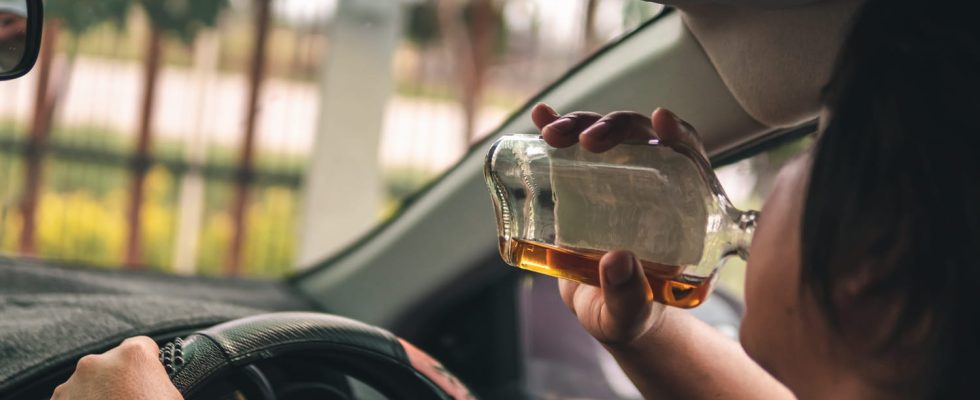The ban on driving while intoxicated is universal, but the penalties are not all the same depending on the country.
“One drink is fine, three drinks, hello damage!” 40 years old, this advertising slogan to warn of the risks of drunk driving has left its mark on generations. Forty years later, the scourge of drunk driving – the leading cause of fatal accidents in France – remains. The problem is not French but rather universal. However, each country fights the problem in its own way with a different system of sanctions. In France, for example, it is prohibited to drive with an alcohol level greater than or equal to 0.5 grams per liter of blood (0.2 grams for the holder of a probationary license). In the event of a level between 0.5 and 0.8 grams, the driver is exposed to a fine of 135 euros, a withdrawal of 6 points from his driving license, which can even be suspended in certain cases. Beyond 0.8 grams, the offense is considered an offense which can result in the suspension of the license, a fine of 4,500 euros and two years’ imprisonment.
Laws regarding drunk driving vary from country to country. Many countries, including seven in Europe (Czech Republic, Romania, Hungary, Slovakia, Croatia, Latvia and Estonia), practice a zero tolerance policy. Others, such as Norway and Sweden, have a tolerance threshold very low, at 0.2 grams, when it is 0.8 in Great Britain and the United States. The amount of fines and penalties incurred also vary depending on the legislation. However, there is a country where driving under the influence of alcohol can send you straight to…the cemetery.
Contrary to what one might imagine, this is not a country in which Islam is the state religion, like in Saudi Arabia, Iran, Indonesia or the Maldives. If in these countries, where the legislation is inspired in whole or in part by the Koran, the consumption of alcohol is prohibited, the penalties relating to drunk driving are relatively equivalent to what is done everywhere. No, you have to look elsewhere to find the country that is least tolerant of misconduct. Head to…China!
In the country of the Middle Kingdom, the authorized limit of alcohol in the blood is set at 0.8 grams per liter of blood. But the penalties for exceeding them can be extremely heavy. In the event of a fatal accident, driving while intoxicated can be punishable by death. Although the figures for executions remain well guarded, it is common knowledge that China remains, by far, the country in the world with the highest number of executions. And accidentally killing someone in a car while under the influence of alcohol is one of the offenses likely to result in the death penalty.
If, as seen above, the legislation elsewhere is less punitive, the fact remains that driving while intoxicated should be prohibited. Alcohol affects brain function, reducing the ability to make rational decisions, react quickly and stay focused. This can lead to poor risk assessment and slower reflexes, increasing the risk of a road accident. It’s safer after a night of drinking to designate a sober driver or use alternative means of transportation if you’re a little too high.
